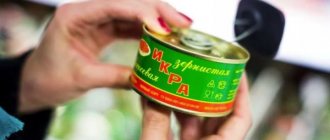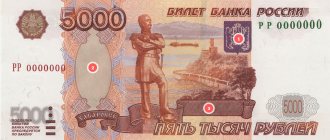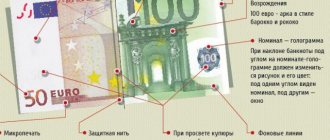Today we will discuss such a phenomenon as deception in the market. We have all long been accustomed to the fact that supermarkets have a cash register, and if the purchased product is damaged, we can come to the store and return the product. The seller’s words that “we didn’t sell you anything” can easily be refuted by the “readings” of the cash register in the seller’s store - any broken product is duplicated in the device’s memory. And we are also accustomed to the fact that in the vast majority of cases in markets there are literally no cash registers at all. So our first question is:
Do you need a cash register at the market?
In accordance with Federal Law No. 54-FZ dated May 22, 2003 “On the use of cash register equipment when making payments in the Russian Federation”, the seller may not use it if he trades at retail markets, fairs, exhibition complexes, as well as shops, pavilions, kiosks, tents, auto shops, auto stores, vans, container-type premises and other similarly equipped trading places located in these trading places, pavilions, open counters inside covered market premises when selling non-food products, except for trading goods, determined by the Government of the Russian Federation.
Instead of a cash receipt, the seller has the right to issue the buyer, if he so desires, a sales receipt or other document of strict accountability. The fact that the seller has such a right as non-use of cash registers does not deprive the buyer of the right to refer to other evidence to prove the fact of purchase (video recordings, witness statements, etc.).
Also, this right does not in any way relieve the seller of the obligation to provide the buyer with the necessary information about the product, which is provided for in Article 10 of the Law of the Russian Federation “On the Protection of Consumer Rights” (for example, information about the consumer properties of the product, about manufacturers, about technical regulations, about the date of manufacture , price, etc.). At the buyer's request, the seller is obliged to provide documents for the goods.
On the market, in accordance with the Federal Law of June 26, 2008 No. 102-FZ “On Ensuring the Uniformity of Measurements,” measuring instruments are also used, or, more simply, scales. Only scales of an approved type must be used in trade, which is confirmed by the appropriate certificate issued for each scale.
In accordance with paragraph 4 of Article 12 of the said Federal Law, “each copy of measuring instruments of an approved type, accompanying documents to the specified measuring instruments and accompanying documents to standard samples of an approved type are affixed with a type approval mark. The design of measuring instruments must ensure the possibility of applying this sign in a place accessible for viewing. If the design features of a measuring instrument do not allow this sign to be applied directly to the measuring instrument, it is applied only to accompanying documents.”
Scales used in trade are subject to mandatory periodic inspection. The seller is obliged to independently provide the scales for inspection; based on the results of the inspection, a corresponding entry is made or a certificate is issued.
If the seller does not provide scales for inspection, he will be held administratively liable.
Methods of deception
Those who have found scales with weights in stores and markets know very well some simple ways to deceive customers using such scales. The most famous is probably the method with hollow weights. At the moment, this method is practically no longer used, since only electronic scales are installed everywhere, the principle of operation of which is completely different. Does this mean that it is impossible to weigh the buyer on such scales? No, it doesn't mean that. And the body kit here can cost quite substantial sums.
Cheating with electronic scales, even if they have all the necessary marks, is easy and simple - using cellophane, which is applied to the surface of the scale, or a piece of tape. An unscrupulous seller, on his side of the scale, glues a piece of film or tape, but so that it is not visible from the buyer. The seller then places the item on the scale and moves it slightly to the side, which from the outside looks like the seller is simply placing the entire item on the scale. In fact, with this movement of the goods, the seller tightens the film or tape, which creates additional pressure on the scale. A body kit in this way can reach hundreds of rubles in monetary terms for one purchase.
There are actually a great many options for deceiving the buyer. Today the following methods are still in use:
- Psychological. The seller “chatters” the buyer with third-party conversations, distracting the buyer from the scales;
- The goods are thrown onto the scales and immediately removed without allowing the scales to “calm down”;
- The seller can serve the buyer very quickly. So quickly that the buyer simply does not have time to notice the quantity of goods;
- Substitution of goods. The seller replaces an expensive product with a cheaper analogue.
- Using a magnet. The magnet is placed on the side that is invisible to the buyer if it is small in size. “True professionals” can use magnetized objects, which they specially place near the scales. With the help of such deception, the body kit can reach 50-100 grams.
What to do if you are weighed down?
If you have any suspicions that you have been overweight, first ask the seller to weigh the goods again. As a rule, many deceiving sellers begin to get nervous at this stage and, if they really deceived the buyer, they immediately correct the situation.
You can go to the market with your own scales, but it is much more effective to use control scales, which should be in every market. You can invite a market representative to weigh the goods on check scales in his presence, or weigh the goods yourself, recording the process on video. If the body kit really took place, then return to the seller and demand that his deception be corrected. Otherwise, you can leave your negative review in the market complaint book, and also write a complaint to Rospotrebnadzor.
What to do if you are overweight or poisoned: instructions for combating store extremism
There are many ways to deceive customers: from selling expired products to wearing body kits. 66.RU consulted with experts and prepared instructions explaining where to complain if you are caught in the act of unscrupulous sellers and ways to protect yourself from fraud.
They sold me 900 grams of apples, but I paid for a kilogram
Sellers often undercut buyers. It is believed that small shops and vegetable stalls do this more often than large stores, but this is a misconception. And in large chains you may encounter underweight, especially in the case of packaged goods (when cheese, meat, vegetables, etc. are pre-packaged and weighed).
If the buyer discovers a fraud, even after returning home, he has the right to demand a recount. If the seller refuses to do this, lawyers advise going to court to demand recovery of unjust enrichment. You need to go to the court at your place of residence, collecting all the documents that you have in your hands, including receipts and photographs.
Be prepared for the fact that this matter will take a lot of your time and effort. And if you contact a lawyer, then money. As Dmitry Zagainov, lawyer of the Sverdlovsk Regional Guild of Lawyers, told 66.RU, the price range ranges from 30 thousand to 70 thousand rubles. for the first instance. And there may be several of them.
|
If a store regularly comes across a body kit, it makes sense to file a complaint with the Ural Interregional Territorial Administration (UMTU) of Rosstandart. For violating the legislation on ensuring the uniformity of measurements (Article 19.19 of the Administrative Code), the store faces from 50 thousand to 100 thousand rubles. fine Also in the Code of Administrative Offenses there is an article “Deception of consumers” (Article 14.7), according to which measuring, weighing or shortchanging consumers threatens a legal entity with a fine of 20 thousand to 50 thousand rubles.
To avoid becoming a victim of deception when buying loose (or packaged) products, you must weigh them on control scales, which are available in every store. In this case, it makes sense to check whether they guarantee the accuracy of the measurements. The same applies to self-service scales, on which you independently weigh the goods you buy.
According to the head of the department for ensuring the uniformity of measurements of mass and volume of the Federal Budgetary Institution "Uraltest" Vladimir Zotin, firstly, the following holographic sticker should be present on the scales:
|
There must also be a seal under the platform on which the products are placed. If the unit that allows the scales to be adjusted in one direction or another is not sealed, then the scales are being twisted.
|
You can also ask store employees for a scale passport (as a consumer, you have the right to this). The passport must contain a mark indicating that the scales have been verified, which means they give the correct result.
|
Scales must be verified once a year. If the passport of the scale contains an old verification mark or the buyer finds a broken seal on the unit, this is already grounds for a complaint.
They sold me pasta at a price higher than what is indicated on the price tag
At the checkout it often turns out that the item that the buyer has added to the cart costs more than what is indicated on the price tag. Sellers explain this by the end of the promotion or outdated information.
By law, you are required to sell goods to the buyer at the price indicated on the price tag. In this case, you can refer to Art. 10 of the Law “On Protection of Consumer Rights”. Moreover, this rule applies even if the buyer has already paid at the checkout, and only discovered the price discrepancy at home: the seller is obliged to return the difference paid.
You can file a complaint against stores that often confuse or forget to change price tags. When contacting Rospotrebnadzor, you must indicate the address of the store, the essence of the complaint and attach photographs proving the fact of the violation (photo of the price tag and receipt). Supervisory agency specialists advise that before contacting them, write a complaint to the seller.
In the Code of Administrative Offences, the sale of goods at a price different from the price tag is qualified under Art. 14.7 (“Deception of consumers”) and 14.8 (“Violation of the consumer’s right to receive necessary and reliable information about the product being sold”). In the first case, the seller faces 20–50 thousand rubles. fine, in the second - from 5 thousand to 10 thousand rubles
They sold me expired milk
Expired products are constantly on the shelves. However, carefully looking at the expiration date of the product is not the only advice in this situation. The buyer has every right to exchange the product for a fresh one or return it and receive the full amount back. To do this, he needs to contact the store administrator, show him the receipt and return the goods. The same applies to spoiled goods, the expiration date of which has not yet expired, but which is clearly not worth consuming, for example, because it was stored incorrectly.
Theoretically, even if the buyer has lost the receipt, he can return the goods. You can prove the fact of purchase, for example, using CCTV cameras, which are probably installed at the point of sale. But this is in theory - in practice it is extremely difficult to prove anything without a receipt.
To return the goods, the buyer may be asked to write a claim to the store. A sample application can be found on the Rospotrebnadzor website.
|
The buyer can also file a complaint with Rospotrebnadzor itself. The easiest way is to send an electronic appeal to the supervisory authority through a special form on the website.
Responsibility for the sale of expired goods is provided for in Art. 14.4 Code of Administrative Offences. For selling goods of poor quality, the store faces from 20 thousand to 50 thousand rubles. fine
I was poisoned by expired yogurt
It also happens that the buyer did not notice that the product was expired and managed to eat it. If this leads to poisoning, it is important to consult a doctor and keep the certificate he gives you.
Rospotrebnadzor advises that after poisoning, contact the seller with a written complaint, formulate your demands in it (terminate the contract, compensate for material damage), indicate the name of the product and its expiration date. The buyer's request must be considered within ten days. If there is no response from the store (or it refuses to compensate for the damage), you can file a claim in court, having first written a complaint to Rospotrebnadzor.
In court, the buyer will need a doctor’s report to prove the fact of harm to health. According to Art. 1095 of the Civil Code of the Russian Federation, harm caused to the life, health or property of a citizen due to design, prescription or other defects of the product is subject to compensation by the seller or manufacturer of the product. The law also provides for compensation for moral damage. The amount of compensation is determined by the court.
And a little more about the quality of the products
Uraltest specialists advise when purchasing products to pay attention to two markings on the packaging. The first is the Eurasian Conformity Mark (EAC). It means that the product has passed the necessary tests in accredited laboratories and has been found safe. Many groups of goods are subject to mandatory certification in Russia. These include food products.
|
If there is no EAC mark on the packaging of a product, it cannot be sold - both the store and the manufacturer are breaking the law. In this case, the store faces from 100 thousand to 300 thousand rubles. fine under Art. 14.45 of the Code of Administrative Offenses (“Violation of the procedure for selling products subject to mandatory confirmation of conformity”).
However, there are cases when there is a label on the package, but in reality the product has not passed laboratory tests. You can check whether the manufacturer has legally placed the EAC mark on the packaging by requesting the relevant document from the seller. According to Uraltest representatives, the certificate can be found at the administrator. You can check its authenticity on the Rosakkreditatsiya website by selecting the “Registers” tab, then “Certificates of Conformity” and finding the required certificate there.
|
The second marking you need to look at is the voluntary certification mark (PCT), which means that the product has undergone additional laboratory tests and confirmed its quality. It may not be on all products - this certification is not mandatory, so you cannot be punished for its absence. However, the buyer also has the right to demand a corresponding certificate from the seller.
Seller's liability for fraud
If your complaint about the seller’s deception is satisfied, then the unscrupulous seller will be brought to administrative responsibility under Article 14.7 of the Code of Administrative Offenses of the Russian Federation.
In accordance with this article, he faces the following punishment:
for citizens an administrative fine of three to five thousand rubles; for officials an administrative fine from ten thousand to thirty thousand rubles; for legal entities an administrative fine from twenty thousand to fifty thousand rubles.
Arbitrage practice
In April 2013, the Rospotrebnadzor Office for the Sakhalin Region brought the general director to administrative responsibility following a buyer’s complaint. According to the arguments of the complaint, confirmed during the inspection, in this store sellers additionally weighed the goods by “gross” weight, i.e. by weight, taking into account the packaging of the goods, although it is indicated on the product, i.e. excluding packaging. The consumer complained that he was cheated of 1 ruble in this way. 73 kop., because the price of packaging has already been included in the final cost of the goods.
Based on the results of the inspection, the general director of the store was brought to administrative responsibility under Article 14.7 part 1 of the Code of Administrative Offenses of the Russian Federation. The store appealed the decision to the district court, which sided with the store, considering that there was no deception of the consumer. Rospotrebnadzor did not agree with this decision and appealed it to a higher court, also taking into account the fact that the store sells hundreds of units of such goods a day and, therefore, the decision of Rospotrebnadzor is legal and justified.
Subscribing to the Channel at youtube.com/videos?disable_polymer=1″>the author’s channel gives you a plus with karma, and also contributes to the creation of higher quality content.
What to do if you are overweight: a buyer's guide
So, what to do if the buyer discovers underweight:
- First, try to resolve this issue on the spot and contact the cashier or the administration with a request to reweigh the goods and return the overpayment.
- If the problem with the seller could not be resolved, write a complaint to the Book of Complaints and Suggestions.
- If the seller refuses to re-weigh, submit a claim to the store management demanding a refund.
- Take a photo of the complaint left in the Book of Complaints and submit it to Rospotrebnadzor .
If the store has not responded to the complaint and refuses to return the money voluntarily, the buyer has the right to go to court .
In addition to compensation for unreasonable costs for lost goods, the buyer may demand a fine in his favor in the amount of 50% of the price of the claim, as well as compensation for moral damage (for example, if the weighting was accompanied by rudeness and rudeness of the seller).










